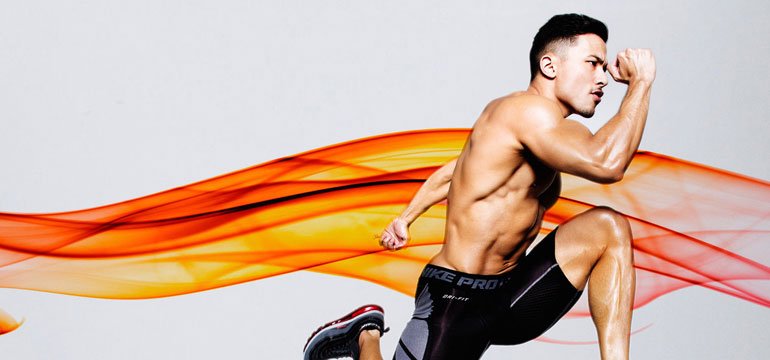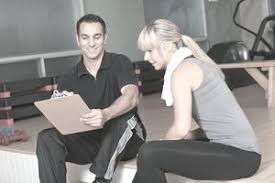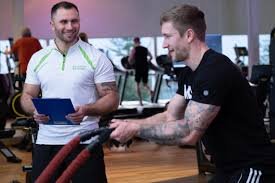SELL YOURSELF IN THE INTERVIEW!

Your Resumé or CV is the medium for showcasing your professional skill sets. Due to coronavirus and global economic recession, in the coming months, employers will select the very best for very few jobs. Personal interviews will be the only chance
for the candidate to “sell him/herself”. Skype interviews will not clinch the job.
1) Career Goal – OUTCOME GOAL
Set goals for developing our professional careers. What, realistically, should be your income at the end of a reasonable period, e.g. a year? Where will you like to work at that time? Set the goals on basis of your self-analysis of your strengths and weaknesses. You can work on them because they are in your control. Do consider factors outside your control: e.g. economic conditions or coronavirus, etc. Your career goal is the OUTCOME GOAL.
2) PROCESS GOAL
To achieve this outcome (result), you need to achieve many smaller, more frequent PROCESS GOALS. Process goals will help you develop your strengths and remove weaknesses in the following areas –
Professional Skills. As a personal trainer, you need to be complete. Weight Training is not enough. So, practice the exercise formats like Pilates, Functional Training, etc. You are a Fitness Guru – a teacher. Practice teaching them.
Communication Skills. You may have the skill sets but you may not be able to deliver them in English, the world’s lingua franca. Improve and practice your language skills.
Self-image and grooming. Work on this very important aspect. The way you dress and walk, the way you eat, etc will be observed when you walk into an interview. Develop Officer-Like Qualities (OLQ)!
Weak in documentation? You need to write an accurate, to-the-point CV or Resumé.
3) Study JOB DESCRIPTION
You should use the employer’s posted job description (JD) as a guide. It is a list of the qualifications, qualities and background the employer is looking for in an ideal candidate. The more you can align yourself with the JD, the more the employer will be able to see that you are qualified. Adjust your process goals, if required.
4) WHY this JOB?
Prior to the interview, write down –
what this particular job requires
why you want this particular job, and
how and why you are qualified for it.
Prepare to explain to the interviewer why you are competent for this job. Practice this “talk” – see below.
5) RESEARCH the COMPANY
Find out information about the company which may employ you. Study its website, social media communications. This will help you build meaningful answers to likely interview questions. Here are a few things you should know before you walk into your interview:
History of the company
Its policies and culture
What is the member profile in terms of age, sex, ethnicity, languages spoken etc?
Facilities in workplace
Terms & conditions of the job
Manager who may be your boss
Senior Management
Is the place work accessible for you?
Research the job functions. Study the JD carefully. Understand all the requirements and responsibilities that go with the job. This will help prepare you with thoughtful, specific questions about the position during the interview. It will ensure that you are well qualified and prepared to tackle the responsibilities if you get the job.
6) Anticipate common interview questions
You cannot predict every question in an interview. But, there are a few common questions you can anticipate. Prepare for theory and practical tests during the interview process. You may also be asked to prepare a case study. Revise your course syllabus:
Practical training – master the exercise formats like weight training, Pilates, Functional Training, HarTrain, “Ira” water fitness & conditioning, etc
Theory of Exercise Sciences – anatomy, physiology, kinesiology, nutrition basics, etc

Here are some sample questions you ought to prepare for:
Why do you want to work (here)?
What are your strengths and weaknesses? (write down on a paper, your strengths in left hand column and weaknesses in the right hand column, then summarise it into short answer!)
What is Fitness? (refer to our books)
Who is a personal trainer? (refer to our books)
Do you do “X” style of format of training? (Be prepared to demonstrate a relevant exercise from “X” – e.g. functional training or plyometrics or HarTrain, etc. Remember: nobody else has this vast practical knowledge as you, being a CCPFT student!)
How will you motivate clients? (use the tips from ManTra Exercise Psychology workshop!)
How will you motivate clients? (use the tips from ManTra Exercise Psychology workshop!)
How will you motivate clients? (use the tips from ManTra Exercise Psychology workshop!)
How will you motivate clients? (use the tips from ManTra Exercise Psychology workshop!)
How will you convert clients into personal training clients? (you will work to achieve maximum possible results in your clients on the floor; make them believe in your ability as a personal trainer: if you can train 6 clients at the same time so well, will you not be a better personal trainer “1-on-1” ? You will gently inform the client that his unique fitness goals, his age and medical / physical condition will be better served through personal training.
How do you develop rapport with clients? (by offering result-oriented, safe and scientific training; explaining the exercises to be done in a particular session; guiding client with due regard to his privacy and dignity; by closing each session with a “cool down” and saying to him: “Thank You for giving me the opportunity to train you .. I look forward to training you in the next session!”)
Why is First Aid & CPR – AED important for a trainer? (write down 4 or 5 benefits to you as trainer and your client)
Tell me about a difficult client you’ve had (if you had such a client – e.g. a client who was not regular, then how did you make him come to gym regularly? Or, how did you train a client with a medical condition?)
How will you train special populations? (be prepared to explain how you will train a “CHD or Hypertensive patient”, arthritis patient and a patient with cervical or lumbar spondylosis)
7) Conduct practice interviews
Practicing interviews is the best way to relieve anxiety and improve your confidence. Practice will make you more comfortable and help you give the right impression. If you do not have another person, practice your questions and answers out loud. If you find that a few answer sound awkward, improve them and commit them to memory. The more you revise your interview, the more confident you will be! Practice a confident, strong voice and friendly, open body language with friends or family or in front of a mirror. Pay special attention to your smile, handshake and stride.
8) Prior to interview date and time
If possible, visit the place of interview a day earlier around the time the interview will take place. This will help you visualise the interview when it actually happens. Get the “feel” of the place. Observe the colours of the walls, the furniture, the sounds of traffic from outside, etc.
Keep your file ready with documents – copies of the CV, education and professional qualifications, passport, etc. Make it a point to carry some extra photos and a writing pen. Do not forget to print some visiting cards. Make sure the cards are printed on the same paper as your résumé or CV.
Find out the type of clothes you need to to wear – tie and shirt? If yes, practice wearing them for few days before the interview. If you wear a tie only for the interview, you will fidget with it nervously. Carry clean clothes and shoes for a practical test.
9) In the Interview
Ensure that you reach the interview about 15 minutes ahead of scheduled time.
If you are asked to give a written theory test or submit a case study or a practical exam, be ready and confident.
Use the time to sip some water and freshen up.
Relax! Keep calm. You have prepared for this moment – you have done your best!
When summoned, knock on the door and ask for permission to be allowed in. You may be allowed into the room after some delay – just to see your reaction.
Wish or greet the interviewer with a pleasant smile!
If you are asked to give a written theory test or submit a case study or a practical exam, be ready and confident.
Do not offer a handshake. Wait for the interviewer to offer his / her hand. Probably, a “namastey” will be more than adequate, keeping in mind hand hygiene.
Do not sit on the chair until you are invited to. You may not be invited to sit as soon as you enter the room – just to see if you get impatient.
Once invited to take the seat, sit in upright position; keep the file of documents on your lap. Do not lean or drum your fingers on the table.
Answer each question thoughtfully. Understand the question and then respond. Be honest.
If you have questions about the job or work be sure to ask. These questions can range from the brand of weight training equipment to their rules regarding leave. You can ask about the “compensation package”. This is the perfect opportunity to find out more about the company and show the interviewer how you will fit.
Emphasize the parts of your résumé or CV that highlight what you bring to the job. Remember, whoever is interviewing you wants to know why they should hire you. The sheets of paper you have presented do not answer his question. So, you must take the initiative during the interview to tell him your unique skills, educational background, or experiences that make you the best candidate for the job.
Sell yourself! You have the professional skills and abilities that set you apart from other applicants. Not many others have your knowledge of weight training, Pilates, water fitness, functional training, flexibility stretching, etc! You have prepared well for the interview. Answer to the point but choose the most positive and relevant information to share during the interview. Offer to show your “strong” points. If you are weak in Sports Yoga, please do not mention it. If you are confident about weight training and Pilates, be sure to inform the interviewer. Do not be shy about sharing your abilities with the interviewer. Your potential employer wants to know that you’ll be the right fit and that you can deliver something to the company.


10) Follow up Interview
After your interview, follow up with the employer. Remind by email the employer of your conversation; show that you are genuinely interested in the job. This will also give you the chance to bring up points you forgot to mention in the interview. In the first paragraph, mention the specific job title you were interviewed for. Thank your interviewer for the opportunity. In the next, note the company’s name as well as a conversation point and / or goal that seemed especially important to the person you spoke with. Link that point to your experience and interests. In the final paragraph, invite the interviewer to ask you any additional questions. Close by saying you’re looking forward to their reply.

